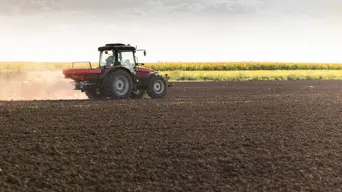Warning of poor summer crop yields, with lowest maize harvest in 5 years
Bruce Whitfield interviews Wandile Sihlobo, chief economist at the Agricultural Business Chamber of South Africa.

Picture: © Kostic Dusan/123rf.com
The outlook for South Africa's summer crop yields is bleak, and getting bleaker.
The Crop Estimate Committee (CEC) has further lowered production forecasts for the country’s summer grain and oilseeds, this month.
It's no surprise, considering the difficult growing conditions with scant rainfall throughout February and March, writes Wandile Sihlobo in a piece for Daily Maverick.
"The CEC now forecasts South Africa’s 2023/24 total grain and oilseeds production at 15.8 million tonnes, down by 9% from last month and 21% lower than last season’s harvest."
Wandile Sihlobo, Chief Economist - Agricultural Business Chamber of SA
The Agricultural Business Chamber economist notes that this year’s overall decline in production prospects is primarily due to poor yields, not area reduction.
Farmers actually tilled more land this season than in the 2022/23 season, he points out.
In conversation with Bruce Whitfield, Sihlobo says our summer crop-growing regions have not received any widespread, adequate rainfall since the end of January.
The worst-affected areas are the North West and Free State.
"The numbers we have now about what we expect the commodity harvest to be, really reflects that difficulty many areas are experiencing. If you think about the overall total grains in South Africa, that is everything we produce, we are down 21% year-on-year."
"For some commodities like white maize, the declines are even much sharper at 25% YOY down."
Wandile Sihlobo, Chief Economist - Agricultural Business Chamber of SA
Sihlobo says this will affect not only South Africa but the whole southern African region, where white maize is also depended upon as a staple food.
When it comes to rising food inflation, what they're really worried about is that grain component of white maize, he adds.
Scroll to the top of the article to listen to the complete conversation